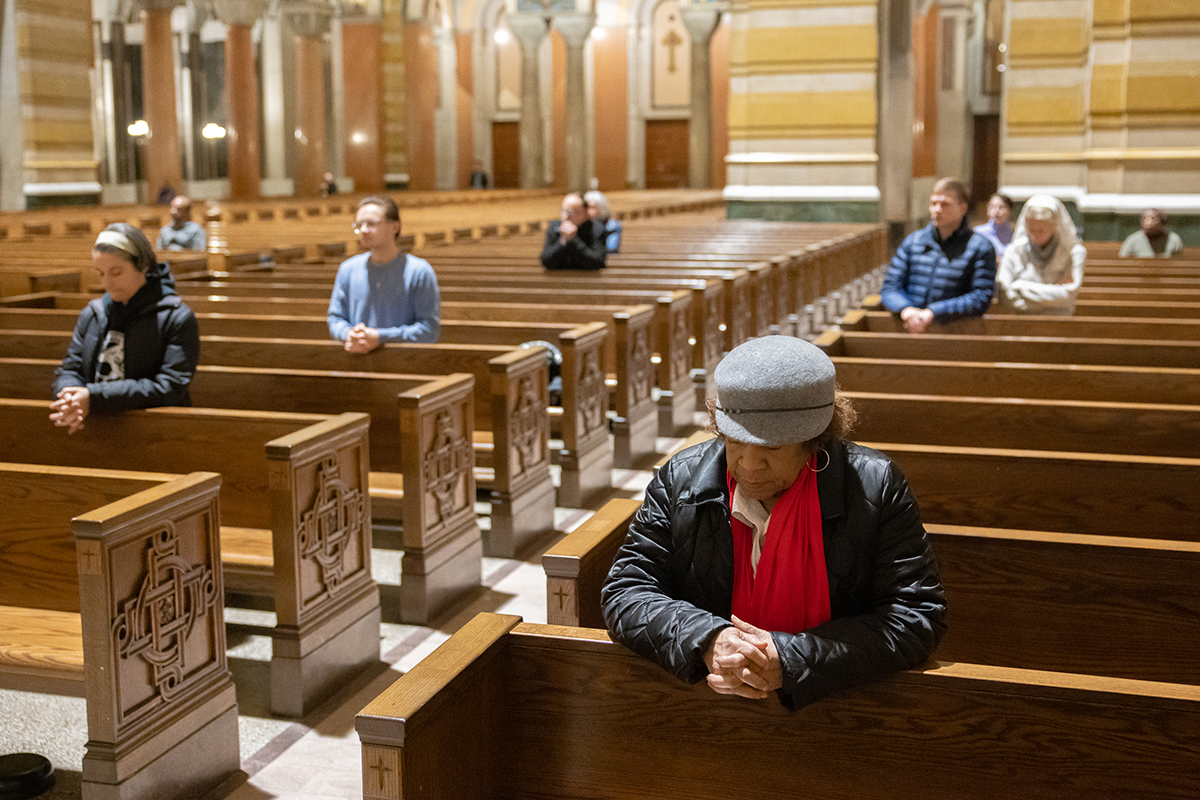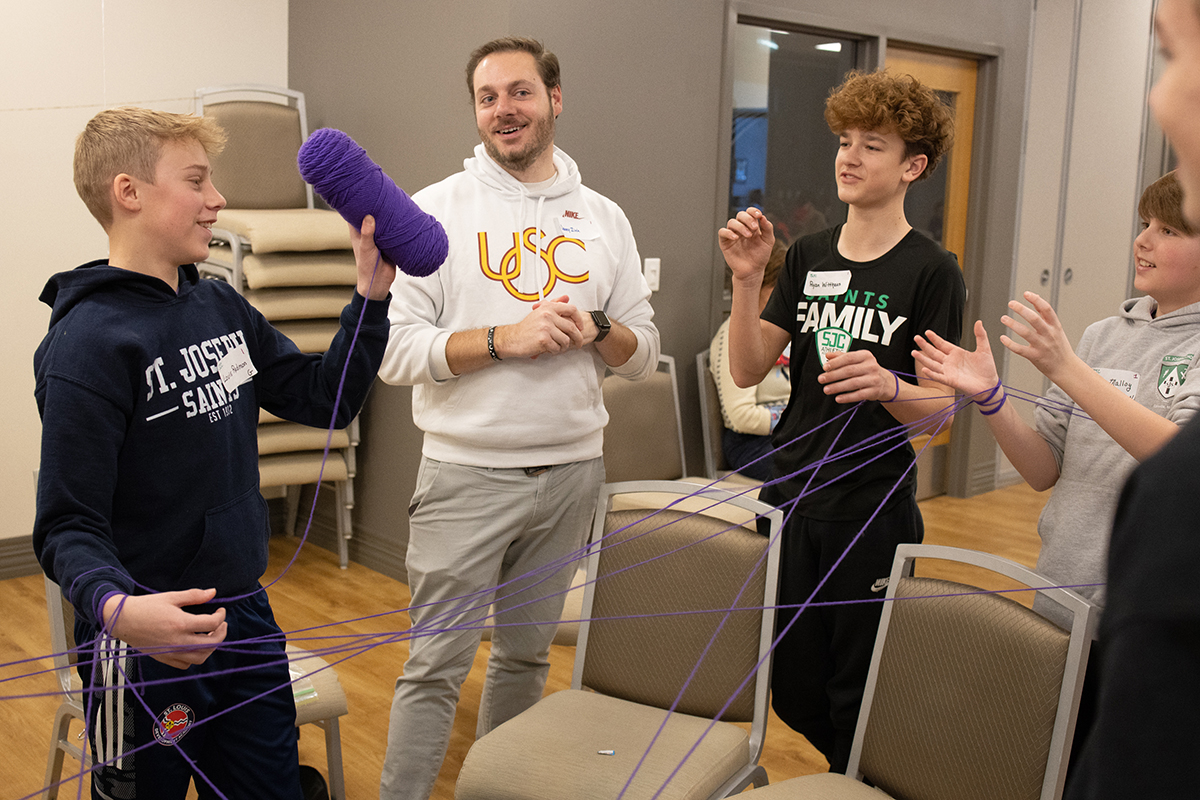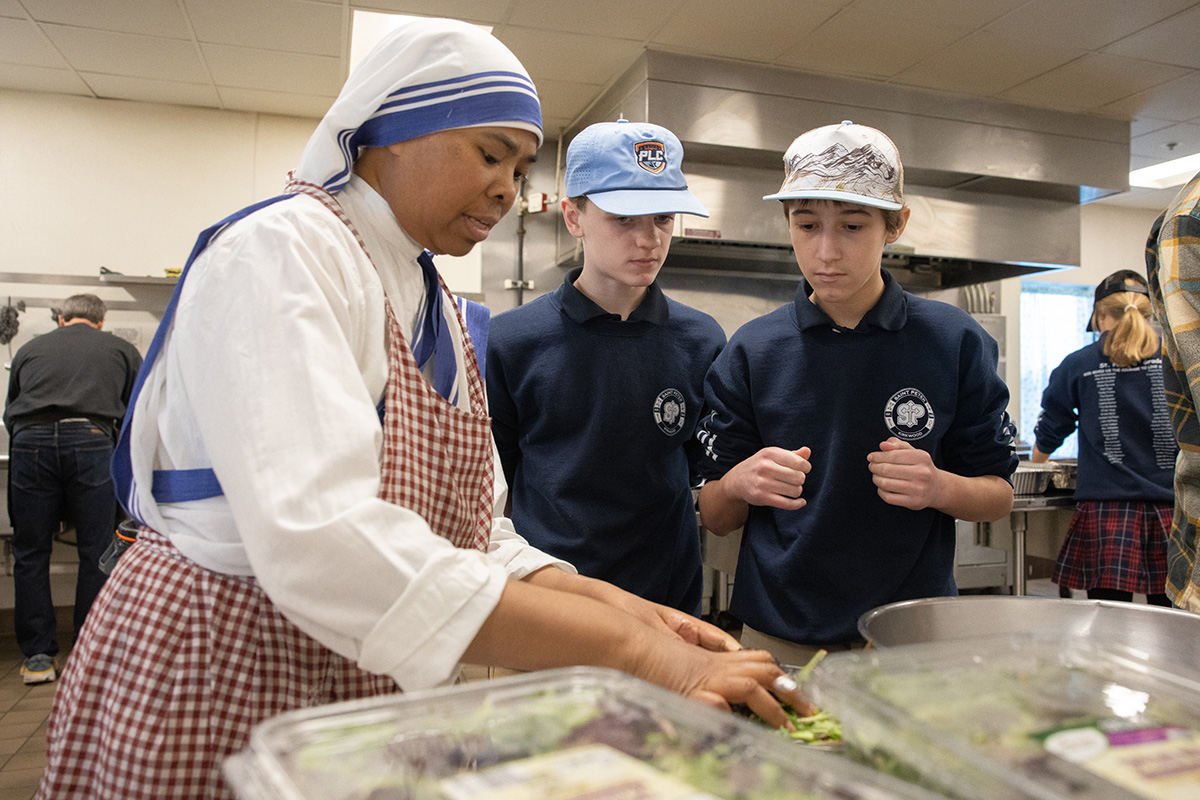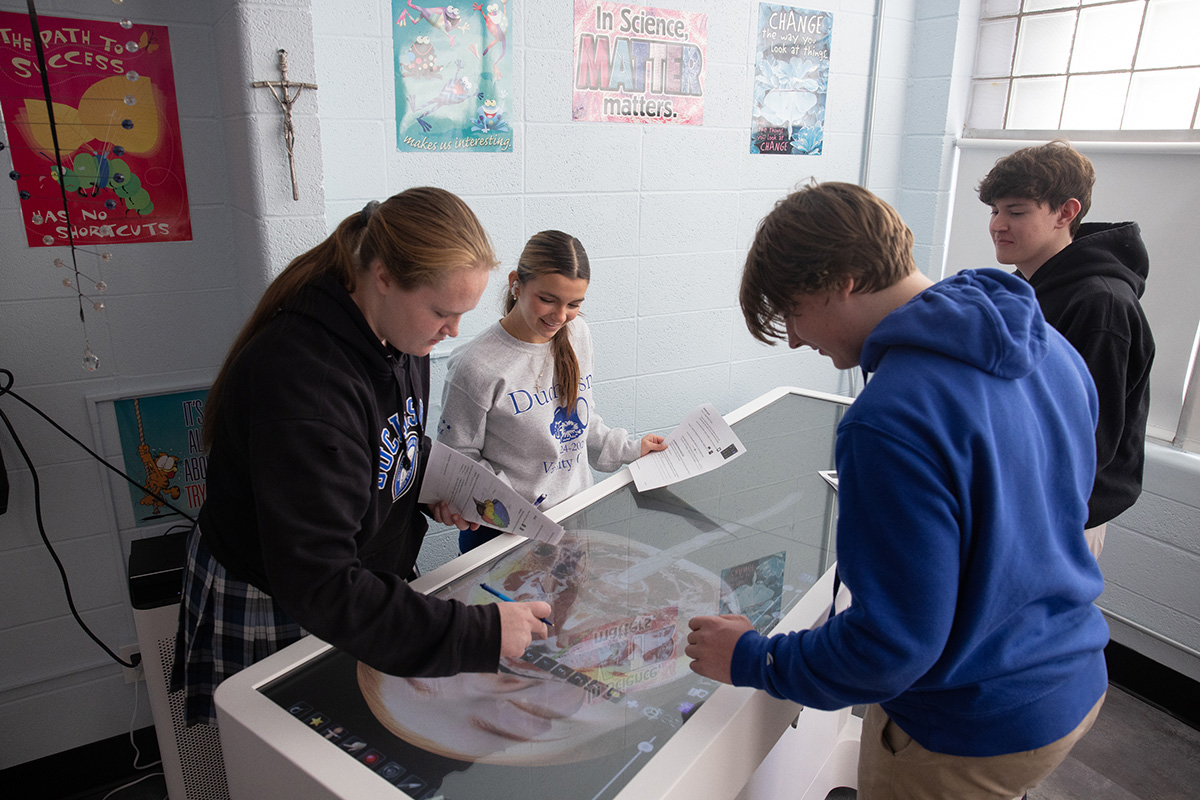Catholic agencies address poverty issues, public policy
Catholic Charities, Society of St. Vincent de Paul make stop in St. Charles
A forum last month gave Catholics a chance to voice public policy concerns and ideas to legislators ahead of the state legislative session, which convened Jan. 3. The Dec. 11 event in St. Charles County was a collaboration by Catholic Charities and the Society of St. Vincent de Paul “to put low-income people in the front of legislators’ minds as they go into the session,” according to Tamara Kenny, director of advocacy and community engagement at Catholic Charities.
Kenny explained that charitable work is compared to pulling people out of a river who had fallen in. But to see why they are falling in, it’s necessary to walk up the river and discover the source to develop prevention or ways to make it easier for them to get themselves out once they fall in.
The goal of the forum was to encourage ideas for public policy initiatives on a several social issues.
Homelessness and poverty
Homelessness “is a real concern in St. Charles County,” Kenny said. “It has motivated people to get involved and pay attention to public policy.”
Most people would be more concerned, she said, if they really knew what poverty entailed.
Steven W. Polk, chairman of the Society of St. Vincent de Paul St. Louis Council’s Voice of the Poor Committee, said “so much of what we do is help people with utility bills, which is becoming a bigger and bigger issue. Housing costs and transportation are other ones of keen interest to us. As a Society, the implications of the overhaul of the tax legislation, things like the deductibility of contributions, are a concern.”
His committee’s mission is to break the cycle of poverty by inspiring Vincentians to be effective servants of the poor and voices for just polices and systems. Goals and objectives include raising awareness on poverty; giving voice to the poor; motivating Vincentians to fight poverty; and partnering with other social service providers.
Polk appreciated the opportunity to gather with the people in St. Charles and the collaboration with Catholic Charities. He urges people to “get informed and get engaged. … It’s going to take sending notes to elected representatives when legislation comes up, whether at the state or federal level.”
Polk’s committee is in contact with the Missouri Catholic Conference, and Catholic Charities advocacy efforts also works closely with the public policy agency of the state’s Catholic bishops.
Dignity of work
St. Vincent de Paul volunteers cite payday loans, which “make it easy for people to fall in the water, and pretty soon they’re in it over their head,” Kenny said.
Labor union laws often called “right to work legislation,” their effect on low-income workers; low-income state tax credits; and access to health care were among the issues of concern brought up at the meeting in St. Charles. The Catholic Charities board will meet later to formalize its priorities.
Health care
Missouri has programs that provide access to health care for children but not much for nondisabled adults, Kenny said. Non-disabled adults without children generally are not eligible for Medicaid regardless of how low their income is, and parents with dependent children are only eligible if they have incomes that don’t exceed approximately 22 percent of the poverty level. It puts Missouri in the bottom five of all states.
“You’re really challenged when you’re low income and not in good physical or mental health,” Kenny said, pointing out that the U.S. bishops have declared health care access is a right and not a privilege.
Kenny said that when engaged, “people can make a difference.” She said that a legislator at the program in St. Charles noted that he hears regularly from lobbyists but doesn’t always hear from citizens.
“That’s why we want to make sure our voices are heard,” she said.
MCC priorities
Urging Congress to pass legislation in support of the Deferred Action for Childhood Arrivals (DACA) program will be among the legislative priorities of the Missouri Catholic Conference in 2018.
The U.S. Justice Department announced last September that it would wind down an Obama-era program that allowed undocumented immigrants who came to the U.S. as children to remain in the country. Eliminating DACA could affect more than 800,000 young adults, known as “Dreamers,” leading to many deportations.
“We will be sending out action alerts in the New Year,” said Missouri Catholic Conference executive director Mike Hoey. “These people have lived nearly all their lives in this country. It’s just cruel.”
DACA allows some people who entered the country as minors, and either entered or remained in the country illegally, to receive a renewable two-year period of deferred action from deportation and to be eligible for a work permit. A full implementation of the rescission was delayed for six months, to give Congress time to decide how to deal with those affected by the policy. Deportations would start as early as March, if no action is taken.
“People need to have broader compassion,” Hoey said. The “Dreamers,” he said, “were brought into this country by their parents and from a young age they have lived here. To blame them and send them back is just cruel.”
The MCC also continues to focus its energy on funding for the Children’s Health Insurance Program (CHIP). If Congress fails to extend funding for CHIP soon, then 87,000 Missouri children will be put at risk, according to the Georgetown University Center for Children and Families and the American Academy of Pediatrics. The program provides health insurance for low-income children and pregnant women who have no health insurance and aren’t eligible for Medicaid. It provides medical care for children under 19 years of age whose family income falls within certain guidelines.
Additionally, several of the MCC’s legislative priorities in Missouri in 2018 include:
• Renewing funding for alternatives to abortion efforts
• Securing state funding for in-home care for the elderly and disabled
• Extending tax credits for donating to pregnancy resource centers and maternity homes, and the Champion for Children Tax Credit program, which is for those who contribute to a Court Appointed Special Advocate, Child Advocacy Center or Crisis Care Center.
— Jennifer Brinker
>> Contacts
• The Missouri Catholic Conference has a Catholic Advocacy Network which provides updates on legislation and opportunities to respond. For information about the network, legislative priorities and education on major issues, visit www.mocatholic.org call (573) 635-7239 or email mocatholic@mocatholic.org.
• For information on Catholic Charities of St. Louis’ advocacy efforts, visitwww.stlouisreview.com/jNL “> www.stlouisreview.com/jNL or contact Tamara Kenny at tkenny@ccstl.org or (314) 256-5948.
A forum last month gave Catholics a chance to voice public policy concerns and ideas to legislators ahead of the state legislative session, which convened Jan. 3. The Dec. 11 … Catholic agencies address poverty issues, public policy
Subscribe to Read All St. Louis Review Stories
All readers receive 5 stories to read free per month. After that, readers will need to be logged in.
If you are currently receive the St. Louis Review at your home or office, please send your name and address (and subscriber id if you know it) to subscriptions@stlouisreview.com to get your login information.
If you are not currently a subscriber to the St. Louis Review, please contact subscriptions@stlouisreview.com for information on how to subscribe.







